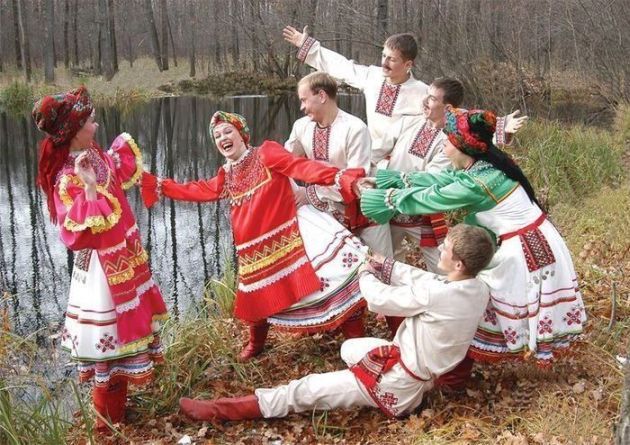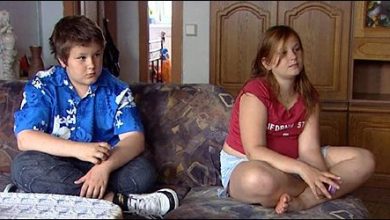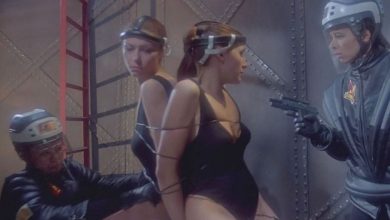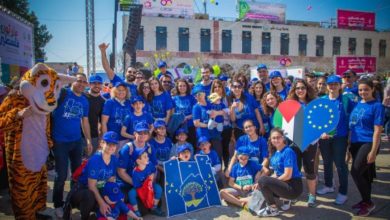Whose project is Russians?
Quite often, one has recently heard that Ukrainians are a project of the Austro-Hungarian General Staff. You know, against this background it became interesting to me, and whose project are the Russians? Not the Great Russians, but the modern Russian nation. We talk a lot about her, admire her greatness, history and so on. But still, when the Russians became modern Russians.
Perhaps a whole book can be written on this subject, or an enormous article, nevertheless, I will try to briefly outline the main thing.
I will not talk about Varangians-Rus now, for this is a separate story and not always related to the Great Russians. For the most part, the Great Russians are descendants of the Slavic tribe of the Vyatichi, Slovenes, a little krivichi in the northwest. Russians as a nation nevertheless formed much later, therefore we will omit this tribal division. And we rush through the centuries to meet our days. At the end of the 18th century there were no Russians as a nation, there were Russians. Look here. Russians are Orthodox peoples of Slavic origin. In general, before the revolution, there was no column of nationality in the passports, there was only religion. All were Orthodox, all were Russians or Russians. Here it is important to understand that in tsarist Russia the word “Russian” did not mean belonging to any ethnic group. This was an artificial definition, denoting initially an Orthodox Slav, and then already all Orthodox. Therefore, you will not find in the census tables of the Russian Empire Ukrainians, Belarusians and the mass of Orthodox Finno-Ugric peoples.
In general, the formation of European nations as political entities is the middle – second half of the 19th century. The German nation is the pure merit of Bismarck, for example. The French a little earlier, 1792. Year of the Great Revolution. Naturally, the emergence of nations was associated with the creation of nation-states and a number of changes in the structure of societies, sometimes associated with bourgeois revolutions or wars for independence. Here are classic examples of Italy and the USA. Great Britain may have been one of the first states along the way. Who forgot – 1649 and the execution of the king.
Again, the middle of the 19th century is the time when the number of educated people begins to increase, the national elite, various cultural figures, writers, philosophers, etc. begin to appear. People begin to think about how the inhabitants of their region differ from their neighbors. Again, various kinds of national liberation movements arise, primarily in the Balkans. In the Russian Empire, more precisely in its universities, on the basis of fraternities, national student organizations are already emerging, the symbols of which subsequently became state-owned for some Baltic countries, for example.
And what about the Russians? But there are no Russians, there are Great Russians — the overwhelming mass of the illiterate peasantry and the nascent proletariat. The nobility, raznochintsy, different intelligentsia made up a very insignificant part of the Great Russians. Here, somehow, it recently caught my eye about a small layer of “Russian Europeans” that they destroyed or expelled from the country the revolutionary proletariat, such a rebellious Russian beast. You know, but there were no “Russian Europeans”, there were Russified Europeans. Moreover, these Russified Europeans, coupled with Russified Tatars, Caucasians, etc. spread rot Russian peasantry without any regret. And if you think about it, after all, such personalities as Chaadaev, Herzen, Chernyshevsky, etc., criticizing the “Russian world”, did not fall upon the dark mass of the Great Peasantry or the proletariat in their own words, but on these Russified people. Say what you like, but all social and public life in the empire affected no more than 15 percent of the population. The rest was only to serve, feed these 15% and supply them with recruits. All. In principle, one cannot speak of any Russian nation here. There is a small stratum of Russians and a huge mass of dumb population. An object controlled by the king’s father. A nation cannot be an object. A nation, whatever one may say, is a subject of power. It is the nation that determines and empowers the government. And if the situation requires, these powers are revoked.
The Russian political nation began to form only after the February Revolution of 1917. This was the first step towards the formation of the young Russian nation, which tried to break out of the shackles of tsarism and church obscurantism. And, in principle, even after the October coup, the Russian nation still had a chance. The empire was falling apart; new state formations and new nations arose on its fragments. It was a normal natural process. For the Russian nation to be born, the empire had to perish.
But. But, the Bolsheviks managed to carry out a counter-revolutionary coup, primarily in the minds of people. People were again driven into state slavery. Yes, to some extent they changed the cover, but the imperial content was preserved. Instead of “Russian” appeared “Soviet man”, and “Great Russian” was nicknamed “Russian”. The words have changed, but the essence remains. The nobility was replaced by party nomenclature, and again the man was unable to influence power. The Russian political nation was killed, shot, hacked, melted already in the cradle.
Gradually, and especially during the years of Stalin’s reign, the “Russian” and the “Soviet” merged together. His famous toast to the “Russian people” at the end of the war, this is not a toast to ethnic Russians, and whatever the Orthodox Stalinists do not say, this is a toast, first of all, to the Soviet people. The national policy of Stalin is a rigid Russification, the creation of historical myths ala-Rus, this is the cultivation of imperial patriotism, presented as almost Russian nationalism. This is a period of struggle against the corruptive influence of the West and “all of ours is all the best.” This is the time when the “Russian people” are physically increased by recording in Russians many small, primarily Finno-Ugric peoples: Izhora, Vodi, Ingermalanders, etc. By the way, the current president of Russia most likely has these same Finno-Ugric, Izhora roots.
In fact, the modern Russians, like a kind of nation, were blinded by the Gulags, having banished through repression, creating imperial cheers-patriotic mythology, Stalin, Russifying many peoples and mixing them up. The current Russian pseudonation is a project of Stalin.
After 1991, there was a chance that the Russians as a nation would be able to revive and begin to build their own national state, in which they would be full masters, as it began to happen in other republics of the former Soviet Union. But the communist past and the communist nomenclature did not want to part with power, mimicking it, hiding behind democratic slogans, it again drove the Russian people into a Russian state. The Russians, as it were, ceased to exist in Russia, they were replaced by “dear” and not so Russians. The Putnian regime, however, followed the Stalinist path of pseudo-nationalism, giving rise to a new totalitarian, chauvinistic ideology – Rashism. If you take a closer look, then Rashism is simply a more ugly, and at the same time simplified, form of Stalinist pseudo-nationalism, built, including on forced Russification.
Today, the Russian national movement faces the task of not only creating a new Russian national state, but also forming a new political nation. At least at the level of the elite and the more socially and politically active part of the population.
You know, some time ago, in one of the VKontakte groups a survey was conducted, in fact, my question was transferred from Facebook there. The essence of the conversation was about whether people are now ready to take Russian citizenship, to become part of the new political nation of Russia or Rus, abandoning their current Russian or Ukrainian identity. Those. whether a person is ready to declare instead: “I am Russian” or “I am Ukrainian”, “I am Russian”. Well, the yellow-blue flag of Russia, the current Ukrainian, was also presented there, only flipped. So, more than 500 people took part in the survey, more than half, 54 percent, they said yes. Another 25 percent, they said yes, but under a different flag. The rest are against. It is clear that the results show only the attitude to this issue of people united by certain common views and cannot be extended to the whole society, but nonetheless.
Why am I doing this. There is a need for the emergence of a new political nation; there are people who are ready to participate in the formation of one. In fact, this nation is born before our eyes today, and all we have to do is to prevent what happened in the 1920-30s, when the Bolsheviks destroyed the nascent Russian political nation, replacing it later with the Russian-Soviet Stalinist chimera. The very chimera that today draws its tentacles to the people of Ukraine.
The Russian political nation was born in the flames of the First World War. A hundred years later, a nation of Rusov may emerge from the flame of the Russian-Ukrainian war.
Rus is glory!
Death to the Horde!
Varyag Rus
This post is also available in:
 English
English  Русский (Russian)
Русский (Russian)





